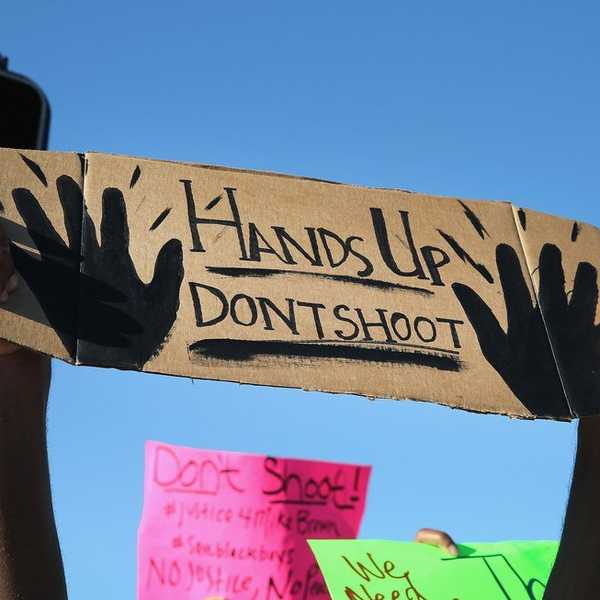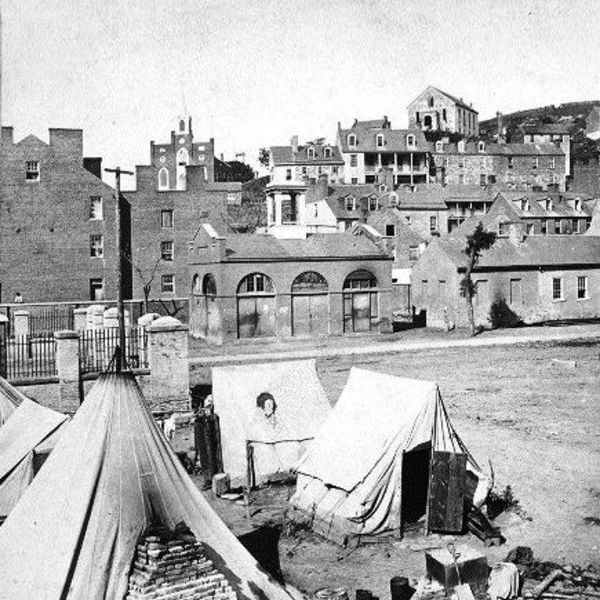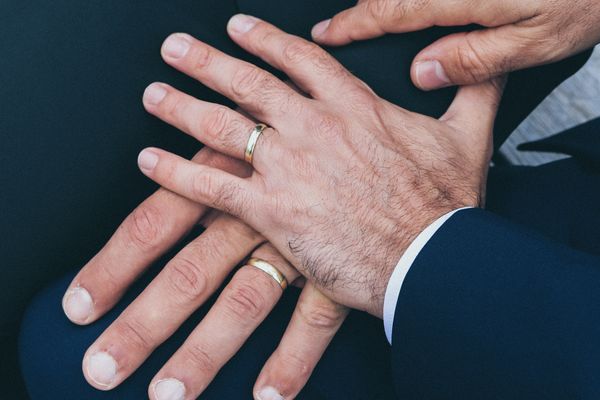Recent instances of racist violence have resulted in protests all over the country.
Just over three weeks ago, the video of the killing of Ahmaud Arbery prompted widespread national outcry.
Arbery was out jogging in a Georgia neighborhood when he was chased by three white men in a pickup truck and then fatally shot. The men's justification for chasing and shooting Arbery was that he had walked into a house that was under construction. Arbery's case was mishandled by three different district attorneys. After public outrage over his death forced the DOJ's Civil Rights Division to investigate the case, the DOJ is now attempting to determine whether federal hate crime charges can be brought against the men.
In March, Louisville police shot and killed Breonna Taylor in her own home.
Police were executing a narcotics search warrant in her apartment when Taylor was met with a barrage of 20 gunshots. The raid happened in the middle of the night and was executed on a no-knock warrant, meaning armed police in plainclothes stormed her home with no warning. Her boyfriend fired off a shot at the officers, thinking they were intruders. Neither Taylor nor her boyfriend had a history of drug use or violence, and the warrant was executed in connection with a drug dealer who had already been arrested. Police thought he may be storing drugs or money in Taylor's home. They found neither. Protests over her death continued in Louisville, KY on the night of May 28 and turned violent when seven people were shot. Breonna Taylor is not the first person to be killed during a no-knock raid, which disproportionately affect Black and Latino people, and she will not be the last.
Earlier this week, George Floyd died in police custody in broad daylight on the streets of Minneapolis, MN.
The officer knelt on Floyd's neck for over five minutes. The entire sequence of events was caught on video as bystanders called out to the police officers to stop as Floyd proclaimed, "I can't breathe." Four police officers were fired in connection with Floyd's death. Calls for the arrest of arresting officer Derek Chauvin escalated into riots as people proceeded to loot the local Target, smash windows, and set buildings on fire. Chauvin's record shows that he has had 10 conduct complaints filed against him, was subject to review by the Office of Police Conduct seven times, and has been involved in three police shootings during his 19 years with the force, and has faced no consequences. The third precinct of the Minneapolis Police Department, where the officers connected to Floyd's death were stationed, was among those buildings set ablaze.
These recent instances of police brutality are part of a larger pattern of racism in America.
Since America's founding, violence against black people has been rampant and systemic. Police brutality is just the tip of the iceberg as far as the inequitable treatment of black people in America goes. From the mass incarceration of black men to the microaggressions that black people are subjected to in everyday life, it is clear that we do not live in a post-racial society.
Racism did not end when slavery was abolished.
Racism did not end when black people got the right to vote.
Racism did not end when Martin Luther King Jr. stood on the steps of the Lincoln Memorial.
Racism did not end when the Civil Rights Act was passed.
Racism did not end when interracial marriage was legalized.
Racism did not end when we elected our first black president.
Racism did not end after the killings of Trayvon Martin, Mike Brown, Tamir Rice, Philando Castile, Freddie Gray, Sandra Bland, Ahmaud Arbery, and countless others at the hands of police officers and gun-toting white vigilantes.
Black people are still being murdered in broad daylight in the streets of America with no consequences.
The recent killings should rock you to your core, but they are not shocking. We have become so desensitized to violence against black people that many white people have shared videos of these recent murders without blinking an eye. We speak of America's past instances of discrimination, segregation, and lynchings as if we as a society have progressed past the ideologies that instigate acts of racism.
We have not.
Just this week, a white woman, Amy Cooper, called the police on a black man, Christian Cooper, who was birdwatching in Central Park just because he asked her to put a leash on her dog. She falsely alleged that he was threatening her life. Racist ideologies are pervasive in American society.
The solution is not to be silent about instances of injustice. All white people must acknowledge the privilege they have in society wherein they will never be targeted nor subjected to systemic oppression because of their race. It is incumbent on white people to bring attention to issues facing people of color and to not just advocate for them, but elevate voices in the black community so that a more equitable and just society can be brought to fruition. We must also act to address our own racial biases and challenge our peers to do the same. That includes questioning the narratives we have been taught about race in America. A large part of that is acknowledging that America was created by slave owners and built on slave labor. Racism is ingrained in the very foundation of our country.
We are taught in school that America is a melting pot; a place where anyone can succeed regardless of their race, gender, nationality, religion, or sexual orientation. With every day that passes, I have realized that that vision of America cannot be reconciled with our reality. As long as people are being killed because of the color of their skin, we do not live in an equal opportunity society. Our own president has fed into racist sentiment and refused to condemn white nationalists. Amidst the protests in Minneapolis, he has advocated for the shooting of protestors who engage in looting. We must ask why our government feels the need to meet those protesting George Floyd's murder with deadly force while allowing white people armed with assault rifles to protest pandemic-induced lockdowns with little police intervention. The system is broken.
If we are to believe that the tone of our nation is set from the top, we must demand more of our nation's leaders and hold those in power accountable.
Yes, America has made progress but the work to radically change the systems that oppress black people still lies ahead. It will not be completed overnight and it will not be magically fixed at the voting booth. It will be a long, arduous, and difficult process but we must demand change. It is not enough to hope that our society changes or to call yourself an ally when you post about racist violence on your Instagram story. Take meaningful action against racism and challenge your white friends to do the same.





















